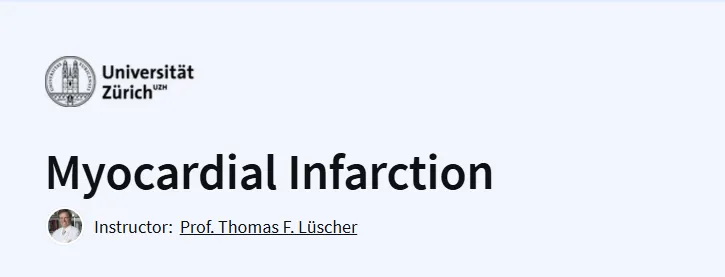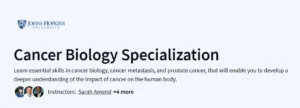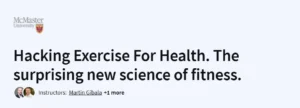What you will learn in Myocardial Infarction Course
- Pathophysiology of acute coronary syndromes
- Evidence-based diagnostic criteria for MI
- Current treatment protocols and guidelines
- ECG interpretation for STEMI/NSTEMI
- Risk stratification methods
- Post-MI rehabilitation strategies
- Prevention and secondary prophylaxis
Program Overview
Pathophysiology of MI
⏱️ 1 weeks
- Covers coronary anatomy, plaque rupture mechanisms, and ischemic cascade.
- Includes case studies of different infarction types.
Diagnosis & Acute Management
⏱️1 weeks
- Focuses on ECG interpretation, cardiac biomarkers, and PCI protocols.
- Features STEMI vs NSTEMI differentiation.
Treatment Modalities
⏱️ 1 weeks
- Examines pharmacological interventions, revascularization techniques, and complication management.
- Includes current ACC/AHA guidelines.
Long-term Management
⏱️ 1 weeks
- Teaches secondary prevention, cardiac rehab programs, and lifestyle modifications.
- Covers risk factor control strategies.
Get certificate
Job Outlook
- Career impact: Essential for cardiology professionals
- Salary potential: 120K350K for cardiologists
- Professional value: Critical for ER/ICU staff
- Certification benefit: Counts for CME credits
Specification: Myocardial Infarction
|
FAQs
- Gain a firm grounding in cardiovascular system anatomy and function, including the heart, coronary arteries, and their physiological roles.
- Understand the risk factors and prevention strategies for heart disease, encompassing lifestyle, hypertension, lipids, diabetes, smoking, and exercise.
- Explore acute coronary syndrome, covering both diagnosis and early management, including imaging, medical treatment, and interventional techniques.
- Delve into follow-up care and rehabilitation, with focus on secondary prevention and outcomes following an MI.
- Learn about advanced stages, such as heart failure, including pathophysiology, diagnosis, therapies (medical, device-based, assist devices), and transplantation options.
- The course includes five structured modules, each focusing on milestones from heart basics through to heart failure management.
- Total estimated length is around 25 hours, making it a substantial but manageable commitment.
- It’s a beginner-level, self-paced online course, available in multiple languages and with flexible deadlines.
- You receive lifetime access to video lessons and assignments across desktop, mobile, and tablet.
- On completion, you’ll earn a certificate of completion that you can share on LinkedIn or your résumé.
- The course is led by Prof. Thomas F. Lüscher, a world-renowned cardiologist based at the University of Zurich, with extensive experience in cardiovascular research and medicine.
- Offered by the University of Zurich on Coursera, the course combines academic rigor with accessible teaching for broader audiences.
- Content includes real clinical scenarios and current therapeutic strategies, connecting theoretical knowledge with medical practice.
- The course has been well-received by learners globally; over 33,000 have enrolled and rated it highly (~4.7/4.8).
- It’s one of the more popular cardiovascular courses on Coursera, reflecting its value and trust among learners.
- No prior clinical or medical background is required—it’s labeled as a beginner-level course.
- That said, a basic understanding of anatomy or general biology could make the content more approachable.
- The course’s structured modules and clear explanations support learners at varying expertise levels.
- Flexible pace and accessible resources ensure you can pace your learning around your own familiarity.
- It’s well-suited for motivated learners—especially those in healthcare, public health, or aspiring to careers in medicine.
- Yes! Upon finishing the course, you’ll receive a shareable certificate of completion via Coursera.
- The course supports flexible learning with auditing (limited access) available for free, while full participation (with certificate) requires enrollment.
- Coursera typically provides financial aid options, making the certified track affordable if needed.
- This credential is credible, especially for those building knowledge in cardiology, health policy, medicine, or public health.
- The course’s affiliation with a top-tier university further enhances the certificate’s value in professional or academic contexts.





